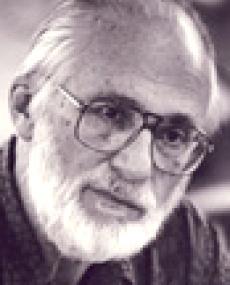
John Mowbray Didcott was born on 14 August 1931, Durban, Natal. After matriculating at Hilton College, outside Pietermaritzburg, Natal (now KwaZulu-Natal) in 1948, he went to the University of Cape Town where he obtained a BA in 1951 and an LLB in 1953. At university he involved himself in student politics and gained a reputation as a powerful public speaker. In his first year he was elected to the Students' Representative Council and served as its president from 1952 to 1954. He was also vice-president of the National Union of South African Students (NUSAS) in 1953 and 1954, and its President for the next two years.
In 1953 he was awarded an Abe Bailey Travel Bursary to the United Kingdom. He was also a member of the team representing the International Student Conference, which visited universities in Southeast Asia for six months in 1955 and 1956.
After graduating, Didcott was admitted to the Bar in Cape Town, but then joined the Cape Argus for a year as Supreme Court reporter. That experience alerted him to the difficulties and challenges faced by journalists and the media, and he was always an avid reader of newspapers, although often critical of their shortcomings.
From Cape Town he moved to Durban where he joined the Bar there, but soon after setting up chambers there, during the 1960 state of emergency he was tipped off that the security police intended detaining him, and he skipped the country to Southern Rhodesia (now Zimbabwe), where he spent some months as a prosecutor until it was safe to return. He returned to the Durban Bar where he built up a large and lucrative legal practice.
Didcott was a founder member of the Liberal Party which brought him to the attention of the security police.
He took silk in 1967 and was Chairman of the Bar from 1973 to 1975. He served as an acting Judge of the Natal Provincial Division in 1971 and again in 1975 and in June 1975, at the comparatively young age of 44, he was invited to take an appointment on the Bench he was appointed a Judge of that Court. In 1994 he became a member of the Special Electoral Court and later that year he was appointed to the Constitutional Court. Judge Didcott served on the Constitutional Court until his death in 1998.
From August to December 1984 he was a visiting scholar at the Law School of Columbia University, New York, United States of America. He served as chancellor of the University of Durban-Westville from 1988 to 1993. He was a member of the board of Governors of the University of Cape Town Foundation in 1990 and an honorary professor in the Department of Procedural and Clinical Law at the University of Natal in Durban since 1989.
In April 1991, in recognition of his contribution to the University and of his attempts to promote justice the University of Natal (now University Of KwaZulu-Natal [UKZN]) awarded the degree of Doctor of Laws, Honoris Causa to him.
His contribution to law and society was also recognised by the University of Durban Westville (UDW - now a part of the UKZN) which made him its Chancellor in 1989. He also received honorary degrees from the University of Cape Town and the University of the Witwatersrand.
Justice Didcott was married to Pam and had two daughters and four grandchildren. He died on the 20 October 1998, after a long and debilitating illness.